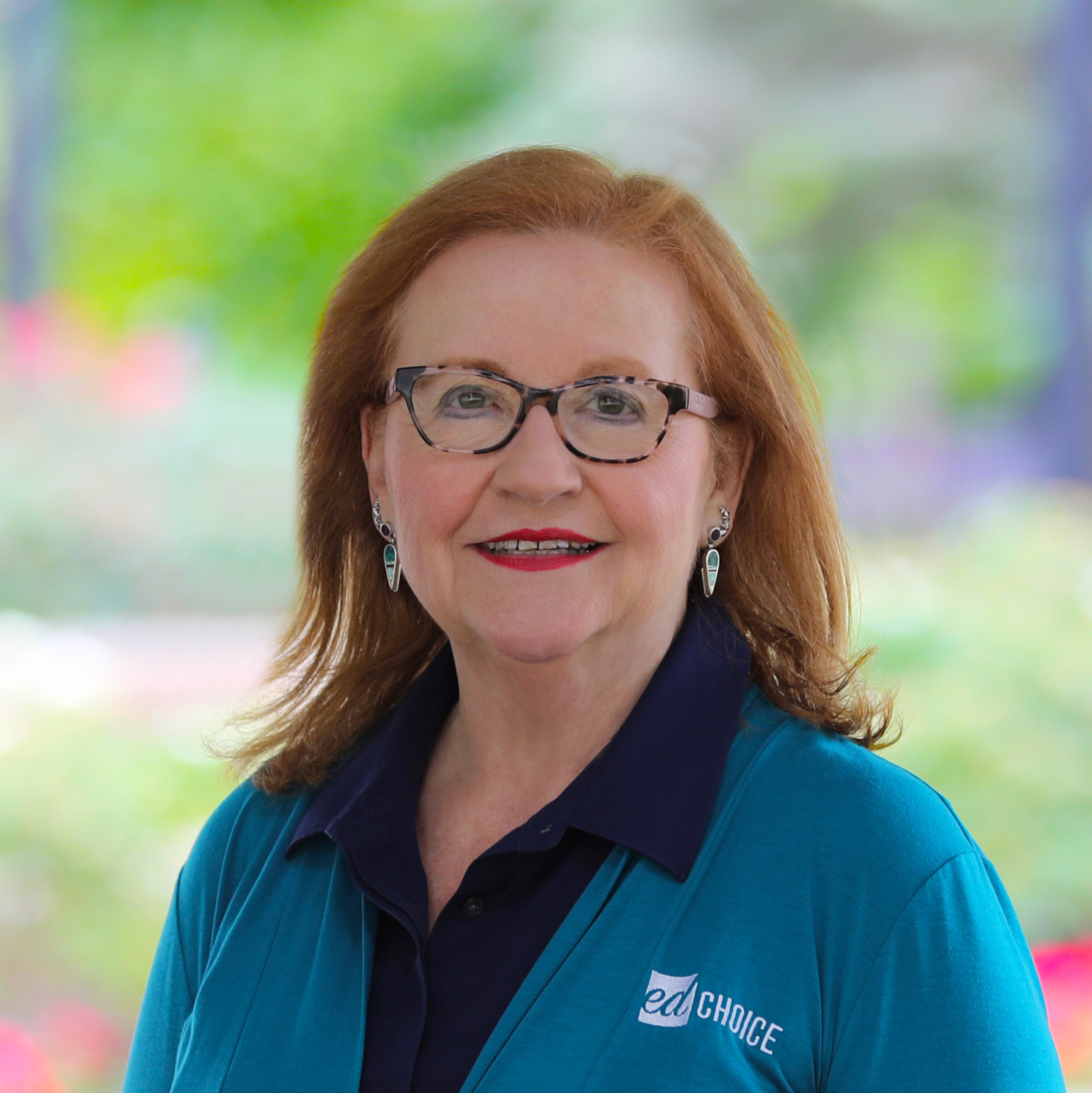Colorado Supreme Court Rules Douglas County Vouchers Unconstitutional
Today the Colorado Supreme Court delivered a disappointing decision for hundreds of Douglas County students by ruling the first locally established school choice program in the country—the Douglas County Choice Scholarship Pilot Program—unconstitutional.
About the Program
The Douglas County Board of Education unanimously voted to create the program in March 2011, enacting the first and only district-level school choice program in the nation. Traditionally, school choice programs such as vouchers, tax-credit scholarships, and education savings accounts are approved by state legislatures, but in Douglas County, the local district supports the funding and administration of the program.
Douglas County vouchers are a universal, districtwide school voucher program. The program briefly served about 500 students in 21 schools in Douglas County, offering scholarships worth up to 75 percent ($6,100) of the district’s per-pupil revenue, retaining the other 25 percent ($1,525 per student) for the district’s public schools. However, it was rendered inactive by a 2011 lawsuit filed by the American Civil Liberties Union (ACLU), Americans for Separation of Church and State, Taxpayers for Public Education, and others.
About the Plaintiffs’ Grievances
In the case Taxpayers for Public Education v. Douglas County, the plaintiffs’ claimed the school voucher program violated:
- the Public School Finance Act and
- four provisions in the Colorado constitution regarding religion (three Blaine Amendments and one compelled support clause)
The Public School Finance Act is a formula used to determine state and local funding amounts for public schools.
Blaine Amendments, still found in about two-thirds of the states’ constitutions, came about in the 1800s during a time when America’s public schools were distinctly Protestant in orientation. The growing Catholic immigrant population found the Protestant public schools were inhospitable to their families because of their religious differences, so Catholics sought public funding to start their own schools. To maintain Protestant control of public education, Blaine Amendments were created. Blaine Amendments prohibited the public funding of any “sectarian” schools or institutions. It’s important to note that the term “sectarian,” during that period in time, was synonymous with “Catholic.” In fact, after the passage of Blaine Amendments, the teaching of the Protestant religion remained in public schools for many years.
Compelled support clauses were originally created to prevent anyone from being compelled to attend or support a church or religious institution without his or her consent.
About the Case
Based on those claims, the plaintiffs won the preliminary injunction in district court. However in March 2013 the Colorado Court of Appeals overturned the ruling, rejecting the plaintiffs’ standing and establishment clause claims. The appellate court applied the decisions of two historical cases:
- the Colorado Supreme Court’s ruling in Americans United for Separation of Church and State, Inc. v. State of Colorado, 648 P.2d 1072 (Colo. 1982), which upheld the constitutionality of a college scholarship program that permitted students to use public funds to attend religious schools, and
- the ruling of the U.S. Court of Appeals for the 10th Circuit in Colorado Christian University v. Weaver, 534 F.3d 1245 (10th Cir. 2008), which held the First Amendment was infringed when financial aid was provided to students attending sectarian institutions, but not to students attending “pervasively sectarian” institutions.
From there, the case was then sent to the Colorado Supreme Court for review.
In May 2014, the Colorado Education Association (CEA) and the National Education Association (NEA) filed an amicus brief on behalf of the plaintiffs. The brief did not address the plaintiffs’ constitutional claims, but rather opined on the effectiveness of the program. The CEA and NEA argued research does not support the contention that school voucher programs improve educational performance through competition and that the Douglas County Choice Scholarship Pilot Program will harm public education by weakening public schools and fostering inequality among education institutions.
In response to the brief, the Independence Institute and the Friedman Foundation for Educational Choice also filed an amicus brief offering data that shows that the structure of the Douglas County vouchers prevents fiscal harm to Douglas County Public Schools, would not cause harm to public school peers, and would benefit participating students. That brief cited eight random-assignment studies that show vouchers have a positive effect on academic achievement in four different states and the District of Columbia and nine studies that show vouchers have a strong, positive effect on academic achievement in public schools because of the competitive pressure school choice programs create. Perhaps most important, the brief noted that none of the numerous studies conducted on school choice programs have ever shown school vouchers harm the academic performance of any students, whether program participants or public school enrollees.
Because each student and family is unique, school choice programs increase net welfare by allowing families to choose schools that better meet idiosyncratic needs…. [C]hoice makes families and students better off by allowing them to select schools based on the criteria they value most. Thus, choice—and the liberty it represents—is itself an inherently valuable outcome of the CSP. It is of the highest constitutional value. (COLO. CONST. art. II § 3. 21)
The Supreme Court reviewed the Appellate Courts decision in December. During oral arguments Colorado Supreme Court Chief Justice Nancy Rice asked, “Are you saying public education is just a funding mechanism? … Is all education now public [and parents] can just choose?” Her queries added flame to a question that has been at the forefront of state and national debates over school choice: What is the definition of “public education,” anyway?
Not only has the Colorado Supreme Court’s decision stripped Douglas County families of their access to a program that empowered them to match their children to the best schooling options, but it has also opened the door to questions about the future of school choice in the Rocky Mountain state—and the nation. Notably, Douglas County leaders may now take the Blaine Amendment issue to the Supreme Court of the United States, an opportunity that has long been awaited by the school choice community.
UPDATE – December 11, 2015
On September 24, the Supreme Court of the United States awarded Douglas County an extension for review. In November, Douglas County filed a writ of certiorati, and nine amicus briefs were filed in their support. You can read the Friedman Foundation’s amicus brief for the case here. This month, the ACLU will file their opposition brief and may file additional amici supporting their opposing case. SCOTUS will likely decide by February whether to grant certiorati.
We will continue to update this post as new developments arise.
UPDATE – January 26, 2018
The slate has been wiped clean for school district vouchers in Colorado. After almost seven years of bruising political and legal battles, all the court rulings regarding the constitutionality of Douglas County’s former voucher program have been vacated (as if they never happened). This means that any Colorado school district that chooses to adopt their own voucher program could do so with a relatively clean slate, from a legal perspective.
The U.S. Supreme Court vacated the Colorado Supreme Court’s 3-3-1 ruling against vouchers in June of 2017, then the Colorado Supreme Court vacated the Colorado Court of Appeals ruling in favor of vouchers and the Colorado District Court’s ruling against vouchers when it granted a motion of Douglas County’s newly-elected anti-voucher school board (who had rescinded the voucher program last month) and dismissed the case entirely on January 25, 2018.
In 2011, the superintendent and school board of Douglas County, Colorado, had a dream to ensure that every child living within their district would never be stuck in a school that was a bad fit for that child, or that blocked the child’s ability to be happy and succeed to the child’s full potential, regardless the reason. They were unwilling to let any child “fall through the cracks” – that unhappy euphemism describing what happens to kids when adults in the education system see students as cash cows funding their retirement packages, or when adults are not responsible enough – or are too weak, too busy, afraid, or indifferent – to take action to save those children from a life with too few educational and personal skills to live happy, successful lives as adults. Some will say this is harsh criticism, that not every child can be saved from “falling through the cracks” – but the 2011 Douglas County school board and superintendent were at least willing to try, willing to fight hard for the right of each child within their area of responsibility to have a real chance to succeed. They may not have been perfect people or a perfect board, but they tried.
Perhaps there is another school board, another school district in Colorado that will be willing to try. If that happens, may all the parents and grandparents in Colorado rise up to help them.




